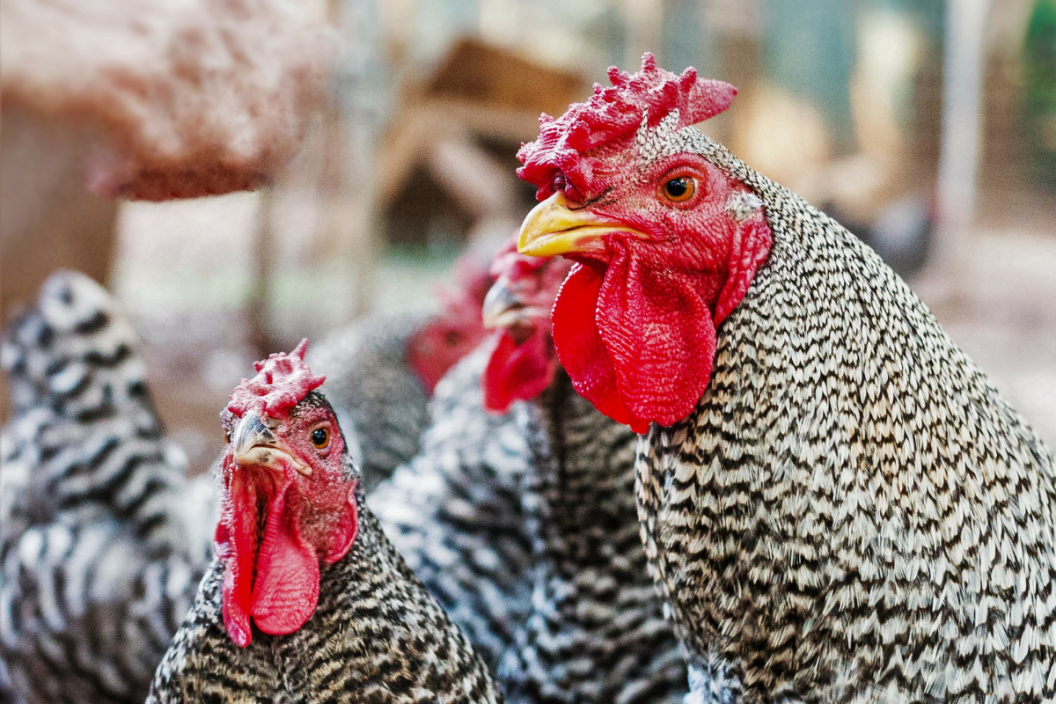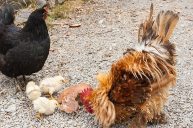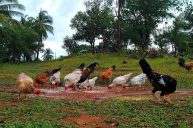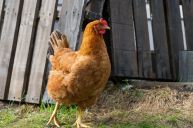Considered to be America's oldest chicken breed, the Dominique Chicken is a dual-purpose breed: here's 5 things you need to know before bringing one home.
Docile, hardy AND hard-working, and not to mention, b-e-a-utiful, the Dominique chicken has got it all.
Recognized as America's oldest breed of chickens, there are several theories of how this poultry breed came about. One of them is that Dominique chickens were said to be brought to the United States by the Pilgrims — which would aptly explain the initial name of these chickens: Pilgrim Fowl. However, it is also rumored that the Dominique breed originated from chickens that were brought over to New England in the U.S. from Southern England during colonial times. Another theory is that this chicken breed hails from the French colony of Saint Dominque (what is now known as Haiti), which, honestly, is likely where the name came from.
While the exact origin of Dominique chickens is unclear, we do know that this is an all-around hardy dual-purpose breed that's great for their egg production skills and do well in cold weather.
Dominique chickens are also known as Dominic and Dominicker. Here are five more interesting facts:
1. They almost became extinct.
https://www.instagram.com/p/CMNi2AXgV95/
The Dominique breed went through its share of ups and downs. Due to their hardiness and easy-to-keep qualities, the chicken breed survived the Great Depression in the 1920s. However, due to changes in the poultry industry, the popularity of the Dominique declined, leading the American Livestock Breeds Conservancy (now known as The Livestock Conservancy) to declare it a rare breed; almost at extinction. Luckily, that has been reversed today.
2. They are excellent egg layers.
https://www.instagram.com/p/CMFmSU5lMP_/
Dominique chickens are known for their great egg laying capabilities and are prized as some of the best egg layers. These birds will steadily provide you with a good 230 to 250 medium eggs a year, laying about 4 eggs a week; egg color will be light brown eggs. Dominique hens are said to be occasionally broody, and this broodiness makes them good mothers.
3. Their combs are resistant to frostbite.
https://www.instagram.com/p/CL4lvOAhzqx/
Bearing strikingly similar appearance to the Barred Rock chicken (or Plymouth Rock if you prefer), the way to tell the difference between the two poultry breeds is the comb: Barred Rocks have a single comb, while Dominiques have what's called a 'rose comb' — the rose comb is resistant to frostbite, making these chickens good in cold weather.
Their comb, wattles, and earlobes are all red along with short and yellow beaks.
4. They are one of the friendliest birds around.
https://www.instagram.com/p/CK_sCmKAwEo/
Known to be docile and just sweet in general, Dominique chickens have one of the best dispositions in the roost — you might even find these friendly birds following you around! However, Dominique roosters, on the other hand, can be aggressive around mating season, but that attitude won't be directed towards their owners.
5. They are excellent foragers.
https://www.instagram.com/p/BnoKzTrFnTo/
These little feathered friends are very good foragers! Chickens & More tells us that
"Dominiques are very low maintenance - this makes them an excellent bird for first time chicken keepers. This breed enjoys searching the fields and ground for bugs and plants to satisfy their hunger. You will often find them foraging from dawn until dusk."
What are your thoughts on the Dominique Chicken? Do you own one? Tell us about it on the Wide Open Pets Facebook page!




